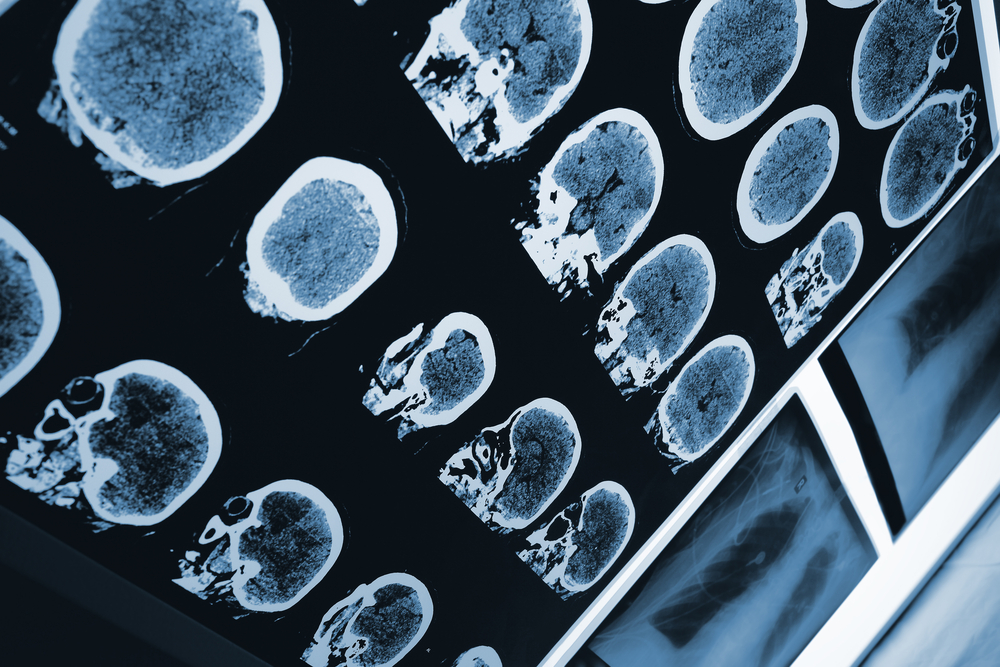Fingolimod Reduces Alzheimer’s Disease Pathological Features in Mouse Model

Researchers tested the effects of fingolimod, an approved treatment for multiple sclerosis shown to have anti-inflammatory properties, in a mouse model of Alzheimer’s disease (AD). The drug reduced the density of pathological plaques and decreased the number of pro-inflammatory cells in in vivo disease models, suggesting a potential therapeutic role for Alzheimer’s.
The research paper, “Fingolimod modulates multiple neuroinflammatory markers in a mouse model of Alzheimer’s disease,” was published in Scientific Reports.
Plaque deposits of insoluble, aggregated amyloid β (Aβ) peptide is one of the most important neuropathological hallmarks of Alzheimer’s disease, and its neurotoxicity has been correlated with neuronal and synaptic loss, which leads to the decline in cognitive function observed in Alzheimer’s patients.
These events are accompanied by neuroinflammatory reactions that have been attributed to reactive astrocytes and abnormally activated microglial cells, which in normal circumstances act as the main immune defenses in the central nervous system (CNS), but in Alzheimer’s patients, are thought to turn against healthy tissue and are present in high levels among amyloid plaques.
Immunomodulating drug fingolimod is a functional sphingosine 1-phosphate (S1P) receptor antagonist shown to have anti-inflammatory properties, preventing the migration of lymphocytes into the CNS and with a possible protective effect against neuroinflammation. Moreover, the compound is able the cross the blood-brain-barrier, therefore having a potential effect on CNS cells that express S1P receptors, including neurons, astrocytes, microglia, and oligodendrocytes. Fingolimod has also been associated with microglial neuroprotective effects, reduction of pro-inflammatory cytokines, and increased levels of brain-derived neurotrophic factor.
Researchers tested fingolimod’s effect on amyloid β abnormalities and neuroinflammation associated with activation of microglia and astrocytes in a mouse model of Alzheimer’s. Fingolimod was able to reduce the levels of aggregated Aβ and plaque burden and correlated with the significant decrease of activated microglia in AD mice. Furthermore, administration of the drug, 1 mg/kg over 14 days (the lowest dose used in the study) attenuated learning and memory impairment and prevented neuronal damage in the hippocampus, a commonly affected brain area in Alzheimer’s.
“In conclusion, these studies showing the beneficial effect of fingolimod treatment in different cell types represent that a dose and time dependent treatment of fingolimod could reflect a distinct property of this agonist/receptor pair resulting in a sustained activation of receptor internalization and active signaling following exposure to fingolimod,” the authors concluded in their study.






